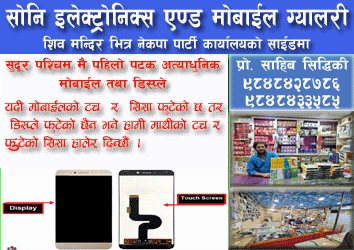Inclusive Education : A Practice for Positive Change

Inclusion is not as vast or ambiguous as it is discussed. It depends upon our mindset about other people who are different to us in some or the other way. If we accept differences and create space for all, it is inclusion. Inclusion in education refers to practices that aims to provide education to all children regardless of their physical, mental, social, emotional, linguistic or any possible barrier in the main stream school. Inclusive education practices are important to ensure the basic rights to education for all. It is also a need of today’s time to create an environment of empathy, support, positive attitude and opportunities for learning and growing without judgement. As we dream about a better future of our children with better education and every available opportunities, it is our social responsibility to make this dream possible for every child in our country with whatever possible efforts we can make.
Inclusive education is a global concept now which has become necessary in order to ensure a better tomorrow for all. Children learning in inclusive setup develop the importance of empathy and valuing each other regardless of their diversity. Many countries are practicing it to ensure quality education as a basic human right.
UNESCO’S 2030 agenda for sustainable development emphasize inclusive education as a fundamental right. In context of Nepal the concept of inclusive education is not new and is backed up by national policies. The constitution of Nepal(2015)guarantees the right to education for all Citizens. The Persons With Disability Act(2017) has stated that children with disabilities should be able to study in their own communities without discrimination.
The National education Policy (2019) ensures the importance of providing inclusive education to children with disabilities and marginalized groups. There are also several other legal frameworks in term of inclusion and education as well as many NGOs and INGOs are also working on establishing the environment of equal opportunities for children with special needs in terms of disability, marginalization or any other factors.
However, even after having supported with government policies and national and international agencies the value of inclusive education is yet to be understood and practiced all over the country. Though it has been included in national policies but very rarely practiced in our schools.
Various factors like lack of awareness in parents of children with special needs about their rights , objection of other parents, unpreparedness of schools, less availability of skilled human resource, lack of monitoring and evaluation in terms of policy implementation and following curriculum guidelines serves as major barriers for inclusive education practices.
There is a need of education providers, parents, community, government agencies etc. to come together to determine a proper framework for inclusion in our mainstream schools under a Whole School Approach(WSA) ensuring the availability of infrastructural resources, educational resources and skilled human resources with proper team of educators, teachers, care takers, therapists and other professionals to ensure overall wellbeing of our children.
In conclusion Inclusive Education is a major need of today to ensure education and skill development opportunities for all children regardless of their physical, cognitive, social, emotional, linguistic or geographical or any other barriers. Inclusive practice will also develop the concept of equity, empathy and confidence in children from very young age and help them grow as responsible citizens.
This practice will help to develop a respectful and non- judgmental generation who will value people and not their strength or limitations. It is possible for every child to learn and grow and be self-sufficient and successful provided the required resources and opportunities.
-Khushbu Ghimire

.PNG)







तपाईको प्रतिक्रिया